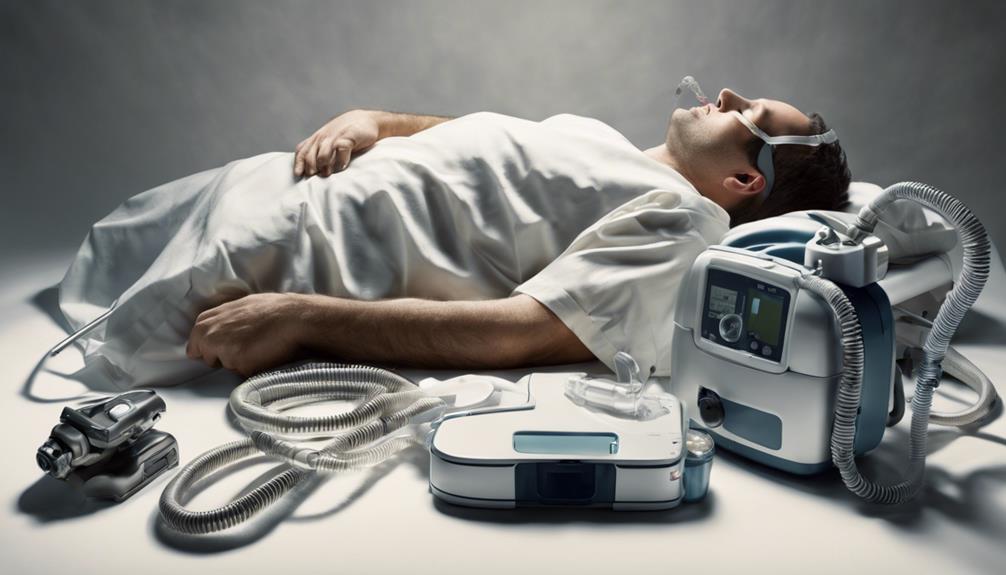To prevent age-related cognitive decline, we can follow seven proven ways. Physical activity boosts brain health and reduces decline risk. Brain games and learning new skills improve memory and problem-solving. Socializing and staying organized maintain cognitive health. Quality sleep is essential for peak brain function and memory. Eating well with whole grains and omega-3s supports brain health. Managing chronic conditions like high blood pressure is critical. Lifestyle choices, like avoiding smoking, also matter. By incorporating these habits, we can keep our minds sharp as we age. More insights await on maintaining cognitive function and aging.
Key Takeaways
- Regular physical activity enhances brain health and reduces cognitive decline risk.
- Engage in brain games, learn new skills, and read to stimulate cognitive functions.
- Maintain social interactions to support cognitive health and prevent decline.
- Ensure quality sleep, a nutritious diet, and manage chronic health conditions.
- Avoid smoking, excessive alcohol, manage stress, and stay mentally active for cognitive well-being.
Physical Activity
Engaging in regular physical activity enhances brain health and reduces the risk of age-related cognitive decline. This means that staying active through activities like walking, swimming, or dancing is essential for keeping our minds sharp as we grow older.
When we exercise, we not only strengthen our bodies but also support our cognitive functions, helping to prevent conditions like dementia. Regular exercise plays a significant role in promoting better cardiovascular health, which in turn reduces the risk of chronic conditions linked to cognitive decline.
By incorporating regular exercise into our routines, we're actively working towards maintaining ideal brain function and overall cognitive wellness. Remember, even simple activities like taking a brisk walk or practicing yoga can make a big difference in keeping our brains healthy and active.
Mental Stimulation

Engaging in brain games, learning new skills, and reading for stimulation are key aspects of mental stimulation. These activities help keep our brains active and healthy, reducing the risk of cognitive decline as we age.
Brain Games Benefits
Playing brain games not only sharpens our cognitive abilities but also offers a fun way to maintain brain health as we age. These games are beneficial for improving cognitive function, memory retention, and maintaining neural connections in our brains. By engaging in brain games regularly, we can enhance our problem-solving skills, attention span, and processing speed.
Studies show that consistent mental stimulation through these activities may lower the risk of cognitive decline as we grow older. So, next time you're looking for a fun and engaging way to keep your brain sharp, consider incorporating brain games into your routine. Challenge yourself with puzzles, memory games, or brain teasers to support your cognitive health and overall well-being.
Learning New Skills
Learning new skills, whether it be a language or a musical instrument, can greatly enhance our cognitive function and strengthen neural connections in the brain. Engaging in activities that challenge our minds is essential for brain health and may reduce the risk of cognitive decline as we age.
Acquiring new skills later in life has been shown to improve memory, attention, and problem-solving abilities. By continuously learning and pushing ourselves to try new things, we stimulate neuroplasticity, which is vital for maintaining cognitive function.
Studies indicate that regular engagement in learning new skills can enhance overall cognitive reserve and offer protection against age-related cognitive decline. So, let's embrace new challenges and keep our brains active to support our cognitive well-being.
Reading for Stimulation
As we explore the benefits of mental stimulation through reading, we uncover its significant impact on cognitive function and brain health. Regular reading stimulates the brain, improving cognitive function and enhancing memory retention. Engaging in reading activities not only boosts information processing but also promotes mental agility and critical thinking skills. Research indicates that reading can reduce the risk of cognitive decline and potentially delay the onset of dementia. Different genres of reading material offer varied mental stimulation, benefiting overall brain health. To illustrate further, here is a table highlighting the key advantages of reading for cognitive function and brain health:
| Benefit | Description |
|---|---|
| Improved Memory | Reading enhances memory retention. |
| Mental Agility | Engaging in reading promotes mental agility. |
| Critical Thinking | Reading challenges the mind for critical thinking. |
Social Interaction

Social connections play a pivotal role in maintaining cognitive health and reducing the risk of age-related decline. Engaging in social activities and fostering strong social connections are essential for brain function.
Research shows that individuals with supportive social networks are less likely to experience declines in cognitive function as they age. Social interactions aren't only enjoyable but also vital for our mental well-being.
By participating in social activities, we can help maintain important mental processes like attention and memory. These interactions can also reduce stress levels, which is beneficial in delaying cognitive decline.
In fact, having a strong social support system is just as important for brain health as physical activity and a healthy diet. Making time for socializing and nurturing relationships is a valuable way to support our cognitive health as we grow older.
Organization Skills

Maintaining strong organization skills is key to optimizing cognitive function and memory retention as we age. By keeping our living and working spaces clutter-free, we reduce the risk factors of forgetfulness and enhance our ability to remember important information.
Using tools like planners to jot down tasks and appointments can greatly improve memory and cognitive function. Additionally, repeating information out loud helps in memory retention and recall, leading to better mental clarity and organization.
Designating specific spots for essential items such as keys and glasses can prevent disorganization and memory loss. Minimizing distractions in our environment is also essential as it enhances focus, concentration, and memory recall, supporting overall organization and cognitive function.
These practices, when combined with a healthy lifestyle that includes being physically and mentally active, can significantly contribute to preventing cognitive decline and ultimately help prevent dementia.
Quality Sleep

Ensuring sufficient and high-quality sleep is essential for peak brain function and cognitive health. Getting 7-8 hours of quality sleep each night lowers the risk of cognitive declines and dementia, ultimately contributing to better overall health and quality of life.
While we sleep, our brains consolidate memories and information, aiding in learning and cognitive processes important for mental function. Inadequate sleep can lead to lower test scores and cognitive decline over time, highlighting the importance of prioritizing restful sleep.
To prevent these risks and maintain cognitive health, it's important to establish proper sleep hygiene practices such as maintaining a regular sleep schedule and creating a peaceful sleep environment. Addressing sleep disturbances like snoring promptly can also help prevent memory loss and support brain health.
Nutritious Diet

To support cognitive health and prevent age-related decline, focusing on a nutritious diet is essential. When it comes to maintaining brain health and cognitive function, what you eat matters. Here are five essential components of a healthy diet that can help prevent age-related cognitive decline:
- Include whole grains: Whole grains like brown rice, quinoa, and whole wheat bread provide vital nutrients and fiber that support brain health.
- Integrate omega-3 fatty acids: Sources such as fatty fish (salmon, mackerel) and nuts (walnuts, almonds) are rich in omega-3 fatty acids, important for cognitive function and protecting against age-related decline.
- Prioritize antioxidants: Fruits and vegetables are packed with antioxidants that help combat oxidative stress in the brain, promoting cognitive health.
- Emphasize brain health: Consuming a diet rich in fruits, vegetables, fish, and olive oil, akin to the Mediterranean diet, can lower the risk of cognitive decline.
- Stay hydrated: Water is essential for overall brain health and cognitive function, aiding in the prevention of age-related cognitive decline.
Chronic Health Management

Properly managing chronic health conditions is essential in reducing the risk of age-related cognitive decline. Conditions like high blood pressure and diabetes can have a significant impact on cognitive functions if not controlled effectively. Regular screenings to monitor cardiovascular health can help in the early detection and prevention of cognitive issues. Adherence to prescribed medications for chronic conditions is critical for maintaining overall health and reducing the negative effects on cognitive functions.
Additionally, managing mental health conditions like depression and anxiety is important for better cognitive health and preventing age-related cognitive decline. Avoiding smoking and excessive alcohol consumption is essential for managing chronic conditions and preserving cognitive function as you age. These lifestyle choices play a significant role in the overall management of chronic conditions and can have a positive impact on cognitive health in the long run. Remember, taking care of your physical and mental well-being is key to maintaining cognitive function as you grow older.
Frequently Asked Questions
What Are 6 Lifestyle Choices That Are Shown to Slow Memory Decline and Dementia Risk?
We can slow memory decline and dementia risk by engaging in regular physical exercise, following a Mediterranean-style diet, getting adequate sleep, staying mentally active, maintaining strong social connections, and engaging in social activities.
What Slows Cognitive Decline?
Regular physical exercise, engaging in mentally stimulating activities, following a Mediterranean-style diet, getting adequate sleep, and maintaining strong social connections are proven ways to slow cognitive decline. These lifestyle choices can support brain health and cognitive function as we age.
What Are the 6 Habits Tied to Slower Memory Decline?
We engage in mentally stimulating activities, exercise regularly, eat a Mediterranean-style diet, maintain social connections, prioritize quality sleep, and participate in social activities. These habits are linked to slower memory decline and are essential for our cognitive health.
Can You Reverse Cognitive Decline?
Yes, we can potentially improve cognitive function through lifestyle changes such as exercise, a brain-healthy diet, mental stimulation, social engagement, and proper sleep. Individual responses may vary, but early detection and intervention play an important role.
Conclusion
To sum up, by incorporating physical activity, mental stimulation, social interaction, organization skills, quality sleep, a nutritious diet, and managing chronic health conditions, we can help prevent age-related cognitive decline. In addition, focusing on balance and strength training can play a critical role in preventing falls in older adults, a common cause of injury and further cognitive decline. By maintaining physical health and mental sharpness, seniors can enjoy a higher quality of life and prolonged independence. Taking proactive steps in multiple areas of wellness ensures a more holistic approach to healthy aging.
These proven strategies are like pieces of a puzzle that fit together to keep our brains sharp and healthy as we age.
Remember, taking care of our minds is just as important as taking care of our bodies. So let's start implementing these practices today for a brighter tomorrow.









